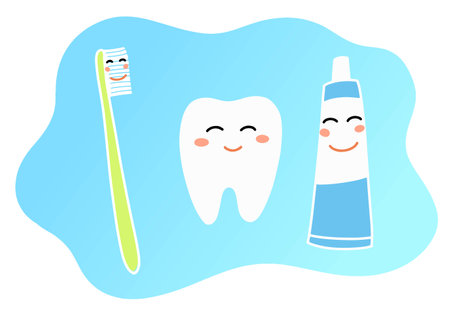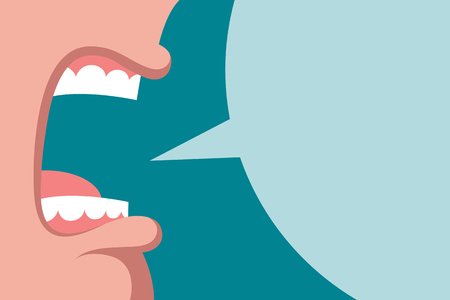1. The Importance of Preventive Oral Care
Taking care of your teeth and gums isn’t just about having a bright smile—it’s also a crucial step in avoiding expensive dental procedures down the road. Many costly treatments, such as root canals, crowns, and implants, can often be prevented with consistent oral hygiene and regular dental check-ups.
Why Preventive Care Matters
Neglecting your oral health can lead to cavities, gum disease, and even tooth loss. These issues not only cause discomfort but also require complex and pricey dental interventions. By practicing good oral hygiene habits every day, you can maintain strong teeth and gums while keeping dental expenses low.
Simple Habits That Make a Big Difference
Preventive oral care doesn’t have to be complicated. Following a few simple steps can help protect your teeth from serious problems:
| Preventive Habit | Benefit |
|---|---|
| Brushing Twice a Day | Removes plaque and prevents cavities |
| Flossing Daily | Cleans between teeth to prevent gum disease |
| Using Fluoride Toothpaste | Strengthens enamel and reduces decay risk |
| Regular Dental Check-Ups | Early detection of issues before they worsen |
| Eating a Healthy Diet | Supports strong teeth and minimizes cavities |
The Cost-Saving Benefits of Prevention
Investing in preventive care now can save you thousands of dollars in future dental treatments. A simple filling is far less expensive than a root canal or crown. Likewise, treating gum disease early can prevent the need for costly periodontal surgeries.
Avoiding Emergency Dental Costs
Dental emergencies often arise from neglected oral health. Severe toothaches, infections, or broken teeth may require urgent and expensive treatments. By keeping up with daily care and regular check-ups, you reduce the risk of unexpected dental bills.
Your Next Steps for Better Oral Health
If you haven’t already established a solid oral care routine, now is the time to start. Brush and floss daily, visit your dentist regularly, and be mindful of what you eat. These small efforts will go a long way in protecting your smile and your wallet.
2. Daily Habits to Keep Your Teeth Healthy
Taking care of your teeth every day is the best way to avoid expensive dental procedures. By following simple daily habits, you can prevent cavities, gum disease, and other oral health issues before they start.
Brushing the Right Way
Brushing your teeth properly is the foundation of good oral hygiene. Here’s what you need to do:
- Brush at least twice a day, preferably in the morning and before bed.
- Use fluoride toothpaste to strengthen enamel and fight cavities.
- Brush for at least two minutes using small circular motions.
- Don’t forget to brush your tongue to remove bacteria and freshen breath.
The Importance of Flossing
Flossing removes food particles and plaque from areas that brushing alone can’t reach. Make it a daily habit by following these steps:
- Use about 18 inches of floss and wrap it around your fingers.
- Gently slide the floss between your teeth without snapping it.
- Bend the floss into a C-shape against each tooth and move it up and down.
- Use a clean section of floss for each tooth to avoid spreading bacteria.
Mouthwash: A Helpful Addition
Mouthwash isn’t just for fresh breath—it helps reduce plaque, fight bacteria, and strengthen enamel. Choose an alcohol-free mouthwash with fluoride for added protection.
The Best Daily Oral Care Routine
A consistent routine ensures your teeth stay healthy. Follow this simple schedule:
| Time of Day | Oral Care Habit |
|---|---|
| Morning | Brush with fluoride toothpaste and use mouthwash. |
| After Meals | If possible, rinse your mouth or chew sugar-free gum. |
| Evening | Floss, brush thoroughly, and use mouthwash before bed. |
Avoiding Harmful Habits
Certain habits can damage your teeth over time. Try to avoid:
- Biting nails or chewing on hard objects like ice or pens.
- Using your teeth as tools to open packages or bottles.
- Consuming too many sugary snacks and acidic drinks.
- Smoking or using tobacco products, which can lead to gum disease.
The Role of Hydration in Oral Health
Drinking plenty of water throughout the day helps wash away food particles and keeps your mouth hydrated. Water with fluoride also strengthens teeth and reduces cavity risk.

3. The Role of Diet in Oral Health
What you eat has a significant impact on your oral health. Some foods can erode enamel, increase plaque buildup, and lead to cavities, while others help strengthen teeth and promote overall dental wellness. Understanding how sugary and acidic foods affect your teeth and making healthier dietary choices can help prevent costly dental procedures.
How Sugary and Acidic Foods Affect Your Teeth
Sugar is one of the biggest culprits behind tooth decay. When you consume sugary foods and drinks, bacteria in your mouth feed on the sugar and produce acids that weaken enamel. Over time, this can lead to cavities and more serious dental issues.
Acidic foods and beverages, such as citrus fruits, soda, and vinegar-based dressings, can also wear down enamel. Unlike sugar, which promotes bacterial growth, acids directly dissolve the minerals in your enamel, making your teeth more vulnerable to sensitivity and decay.
Healthy Dietary Choices for Stronger Enamel
Fortunately, there are many foods that can help protect your teeth and even strengthen your enamel. Choosing nutrient-rich foods that support oral health can reduce the risk of cavities and gum disease.
Best Foods for Oral Health
| Food Category | Examples | Benefits for Teeth |
|---|---|---|
| Dairy Products | Milk, cheese, yogurt | High in calcium and phosphorus, which help strengthen enamel |
| Fibrous Vegetables | Carrots, celery, spinach | Stimulate saliva production to wash away food particles |
| Crunchy Fruits | Apples, pears | Naturally clean teeth by scrubbing plaque away |
| Nuts & Seeds | Almonds, sesame seeds | Provide essential minerals for tooth remineralization |
| Water | Tap water with fluoride | Keeps the mouth hydrated and helps prevent dry mouth |
Avoid These Harmful Foods
Certain foods should be consumed in moderation or avoided altogether to maintain strong teeth:
- Sugary Snacks: Candy, cookies, and pastries contribute to plaque buildup.
- Sodas & Sports Drinks: High in sugar and acid content that erodes enamel.
- Citrus Fruits: While healthy in moderation, excessive consumption can weaken enamel.
- Sticky Foods: Dried fruit or caramel sticks to teeth and increases cavity risk.
- Alcohol: Can dry out the mouth, reducing saliva production that helps protect teeth.
The Importance of Hydration
Drinking enough water throughout the day is crucial for oral health. Water helps rinse away food particles, neutralizes acids in the mouth, and prevents dry mouth. If possible, opt for fluoridated tap water to further strengthen enamel.
Your diet plays a crucial role in maintaining strong teeth and avoiding expensive dental treatments. By reducing sugar intake, limiting acidic foods, and choosing nutrient-rich options, you can keep your smile healthy for years to come.
4. The Benefits of Regular Dental Checkups
Taking care of your teeth at home is essential, but regular visits to the dentist play a crucial role in preventing expensive dental procedures. Routine checkups and professional cleanings help catch potential issues early, saving you from pain, discomfort, and costly treatments down the road.
Early Detection of Dental Issues
Many dental problems, like cavities and gum disease, start small and are often painless in the beginning. Without regular checkups, these minor issues can develop into serious conditions that require extensive (and expensive) treatments.
Here’s how routine dental visits help with early detection:
- Cavities: Dentists can spot tiny cavities before they become large enough to need root canals or crowns.
- Gum Disease: Early signs of gingivitis can be treated before progressing into periodontitis, which may lead to tooth loss.
- Oral Cancer: Regular screenings help detect oral cancer in its early stages when it’s easier to treat.
The Importance of Professional Cleanings
No matter how well you brush and floss, plaque and tartar can still build up over time. A professional cleaning removes these deposits, reducing the risk of cavities and gum disease. Here’s why professional cleanings are essential:
| Benefit | Description |
|---|---|
| Removes Plaque & Tartar | Tartar buildup can lead to decay and gum disease if left untreated. |
| Prevents Bad Breath | Bacteria trapped in plaque can cause persistent bad breath. |
| Keeps Teeth Bright | Coffee, tea, and other foods stain teeth over time; professional cleaning helps remove surface stains. |
Saves Money in the Long Run
Avoiding the dentist may seem like a way to save money, but skipping checkups often leads to more expensive treatments later. Preventive care is always more affordable than restorative procedures like fillings, crowns, or extractions. Investing in routine checkups now can prevent costly dental work later.
5. Avoiding Common Dental Mistakes
Taking care of your teeth isnt just about brushing and flossing—it’s also about avoiding common mistakes that can lead to costly dental procedures. Many people unknowingly harm their oral health with poor habits. Let’s go over some of the most frequent mistakes and how to prevent them.
Overbrushing: Too Much of a Good Thing
Brushing your teeth is essential, but did you know that brushing too hard or using a hard-bristled toothbrush can damage your enamel and irritate your gums? Over time, this can lead to sensitivity and even gum recession.
How to Avoid Overbrushing
- Use a soft-bristled toothbrush.
- Apply gentle pressure—let the bristles do the work.
- Brush in circular motions instead of scrubbing back and forth.
Ignoring Early Symptoms
Mild tooth pain, sensitivity, or bleeding gums might seem minor, but ignoring these warning signs can lead to serious issues like cavities, infections, or gum disease.
When to See a Dentist
| Symptom | Possible Issue | Action Needed |
|---|---|---|
| Sensitive teeth | Enamel erosion or cavities | Use sensitive toothpaste & consult a dentist if it persists |
| Bleeding gums | Gingivitis or early gum disease | Improve flossing routine & schedule a check-up |
| Persistent bad breath | Bacteria buildup or infection | Maintain good hygiene & see a dentist for evaluation |
Using Teeth as Tools
Your teeth are strong, but they’re not meant to open bottles, rip packages, or chew on hard objects like ice or pens. These habits can cause chips, cracks, or even fractures that require expensive repairs.
A Better Approach
- Avoid using your teeth for anything other than eating.
- If you frequently chew on objects out of habit, try sugar-free gum instead.
- If you feel a sharp edge on your tooth after biting something hard, visit a dentist quickly before it worsens.
The Bottom Line: Be Proactive
The best way to avoid costly dental procedures is by taking preventive steps now. By correcting these common mistakes and maintaining good oral hygiene habits, you can keep your smile healthy and avoid unnecessary expenses at the dentist’s office.


